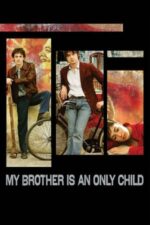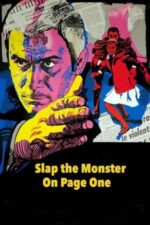The Weight of Lead: Exploring Italy's "Anni di Piombo" on Film
Okay, let’s talk about a period in Italian history that feels both incredibly distant and disturbingly relevant today: gli anni di piombo – the “Years of Lead.” It refers to the late 1960s through the early 1980s, a time marked by intense political violence, terrorism from both left-wing and right-wing groups, and a pervasive sense of societal fracture. It wasn't pretty, folks. And it’s been powerfully reflected in Italian cinema.
Now, you might be thinking, "Terrorism? That sounds heavy." And you're not wrong! But these films aren't just about explosions and political posturing; they're deeply human stories exploring disillusionment, idealism gone astray, and the cost of fighting for what you believe in – even when that belief system starts to crumble.
Take To Love the Damned, for example. It’s a film I always recommend to anyone wanting a taste of this era. It follows Riccardo's return from exile, finding his revolutionary comrades scattered and broken. The vibrancy he remembered is gone, replaced by despair and…well, let's just say some coping mechanisms weren't exactly healthy. It really captures that feeling of realizing your grand vision hasn’t quite worked out the way you planned – a sentiment I think we can all relate to on some level, even if our battles aren’t political!
Then there’s The Front Line, which is just…intense. The love story between Sergio and Susanna against the backdrop of Prima Linea's activism adds another layer of emotional complexity. It asks tough questions about loyalty and sacrifice – how far are you willing to go for a cause, especially when it impacts those closest to you? It’s reminiscent, in some ways, of films like The Battle of Algiers, but with a more intimate focus on the personal toll.
Beyond the direct depictions of political action, films like Working Slowly (Radio Alice) offer a fascinating glimpse into the counterculture that fueled much of the unrest. It's a coming-of-age story wrapped in the history of an underground radio station – a powerful symbol of alternative voices trying to break through the noise. It reminds me a bit of early punk rock; raw, rebellious, and desperate to be heard.
And you can’t talk about anni di piombo without acknowledging events like the kidnapping and murder of Aldo Moro, powerfully depicted in Il caso Moro. It's not just a historical recounting; it’s an examination of how political systems can fail individuals, and how fear can paralyze a nation.
These films aren’t always easy to watch – they confront uncomfortable truths about Italy’s past. But they offer invaluable insights into the complexities of revolution, the fragility of hope, and the enduring power of human connection in times of crisis. They're not just historical documents; they are vital pieces of art that continue to resonate today, prompting us to examine our own beliefs and the consequences of our actions.
What do you think? Any of these films pique your interest? Or perhaps you have other Italian films from this period you’d recommend? I’m always eager to hear!





























